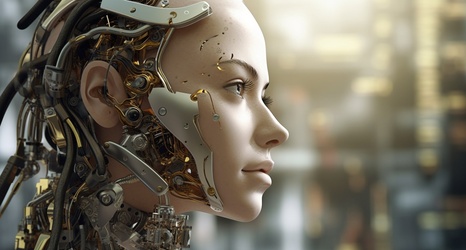Artificial intelligence (AI) and robotic assistants have been making headlines for their potential to revolutionize industries such as healthcare, manufacturing, and transportation. However, these technologies also have the potential to significantly improve the lives of people with disabilities by enabling greater independence and autonomy.
One of the primary benefits of AI and robotic assistants for people with disabilities is the ability to perform tasks that may be difficult or impossible for them to do on their own. For example, robotic arms can assist individuals with limited mobility in performing tasks such as cooking, cleaning, and even dressing themselves.
